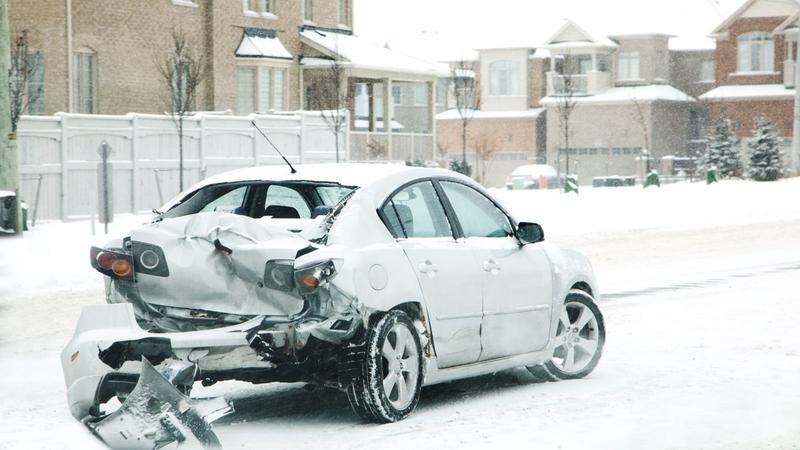The winter months bring cold weather, snow and ice to most parts of Canada, and that means that road conditions are more dangerous than during the dry summer months. With reduced visibility and slippery road surfaces, accidents in the winter are often related to the weather. By employing a little extra caution and a few smart tips for winter driving, you can avoid some of these common winter car accidents that can have an impact on your car insurance rates.
Rear-End Collisions
Slippery roads make it much harder to stop suddenly, and if you have to hit the brakes hard because the car in front of you has suddenly slowed or stopped, you’re much more likely to strike the other car. Rear-end collisions are one of the most common accidents year round, but are even harder to avoid during the winter because of the road conditions – and the fact that few drivers take those conditions into consideration.
When the roads are slippery, it’s vital to provide some extra stopping distance between your car and the one in front of you. If you have to brake suddenly, that extra distance will give you the time you need to come safely to a stop without an accident. Always adjust your stopping distance in accordance with the road conditions.
Sliding Through Intersections
The same ice that makes it hard to stop when the car in front of you brakes suddenly can also cause you to slide through an intersection and strike or be struck by another car. Cars sliding through stop signs and red lights are a common cause of winter accidents. While the ice may be blamed for the sliding car, drivers are still responsible for the resulting accident.
When roads are slippery it’s important to reduce your speed and approach intersections slowly and cautiously. Watch for signs that the intersection might be icy – if the area has not been covered with sand to provide traction or recently cleared it may be dangerous. Give yourself extra stopping time and be aware of changing lights and traffic signs ahead so that you can slow down as needed. Trying to stop at the last minute is more likely to send you into a skid.
Accidents Caused by Poor Visibility
Snow accumulation on roadsides and blowing snow as well as blizzard conditions can all contribute to winter car accidents by making it harder to see objects, pedestrians and other vehicles on the road. Collisions with inanimate objects that are hidden by roadside snow are common single-vehicle accidents; things like mailboxes, fire hydrants and other such items can become buried in the snow and easier to strike when you can’t see them.
Low visibility on the roads, especially on highways at night, is a major cause of serious winter accidents. When snow is blowing across the road or is falling heavily, it can be harder to see what is going on ahead of you and at intersections. Darkness can make this even worse. Check the weather report and road conditions before you head out. If visibility is extremely poor, it might be best to remain where you are until it clears up. If you must drive in low visibility conditions, take things slowly and be very alert; remember that not only are you having trouble seeing, but so is everyone else on the road. It may be more difficult to anticipate another driver’s movements.
Winter Accidents and Your Insurance
Although winter road conditions may be a major contributing cause to an accident, insurance companies will still assign fault in the accident, and an accident can still increase your auto insurance rates. Drivers are expected to take precautions in poor weather in order to help avoid an accident, and are still held to fault determination rules no matter how slippery the road or how poor the visibility.
Winter is an excellent time to review your insurance policy and shop around to compare rates and coverage. Make sure that you have the right level of coverage for your needs and won’t be held financially responsible in case of an accident. The best way to make sure you have the right policy is to review it regularly and take the time to get multiple quotes so that you can compare what you are getting for your money with your current company to what is available.
Every time you get behind the wheel in the winter, make sure you are extra careful. Drive slowly, allow plenty of stopping time and distance, and when in doubt, just stay home. When road conditions are at their worst the odds of a serious or even fatal accident are much higher, so stay off the roads if you can when winter weather is extreme. Even when Mother Nature makes things difficult, you as a driver are still responsible for what happens when you are behind the wheel.
